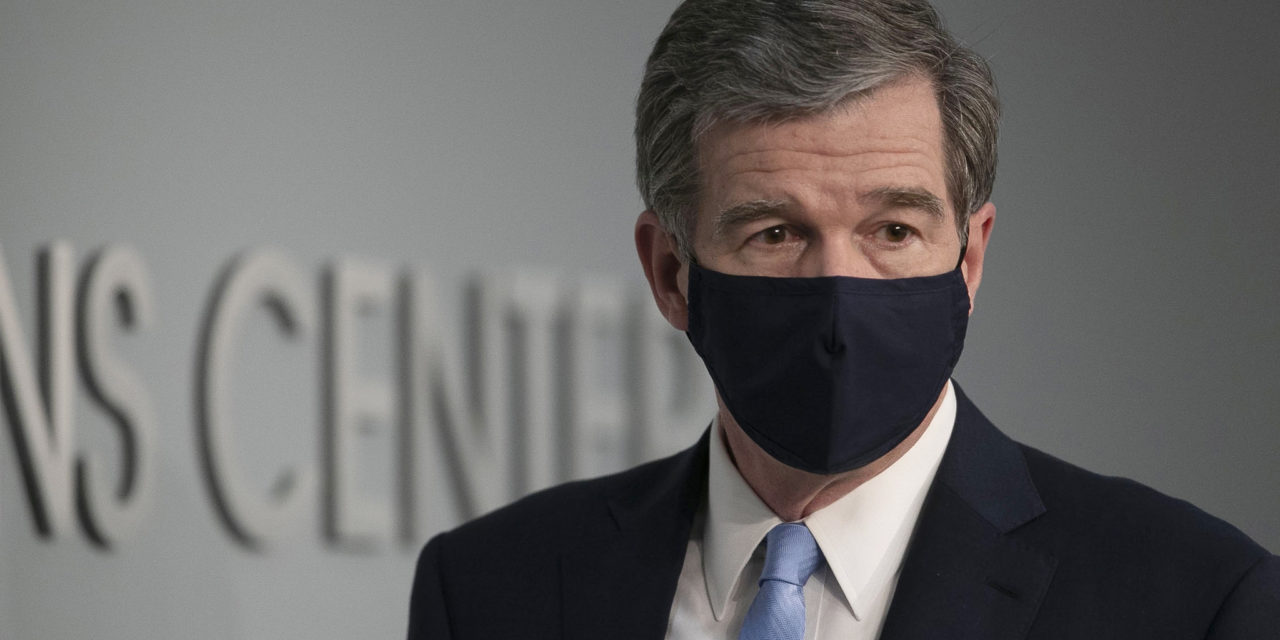North Carolina Gov. Roy Cooper announced on Tuesday he’s curbing alcohol sales hours at restaurants starting later this week, a COVID-19 restriction to discourage late-night gatherings where health officials say social distancing isn’t happening.
Starting Friday, the eateries and other establishments offering drinks by the glass like distilleries and breweries will have to cut off sales at 11 p.m. under Cooper’s latest executive order. State law usually allows sales until 2 a.m. The order doesn’t apply to retailers like grocery or convenience stores that sell beer and wine on the shelves.
Some local governments, Raleigh, Mecklenburg County and Chapel Hill among them, had already approved late-night bans after seeing examples of restaurant patrons failing to wear masks or to remain apart in the wee hours. More restrictive local limits on alcohol sales can remain in effect.
At a media briefing, Cooper said the statewide directive is needed as case numbers have increased among young people, and as college students return to North Carolina schools next month. Cooper’s announcement came on the same day North Carolina reported another record number of hospitalizations involving coronavirus patients, which is now approaching 1,250.
“We know that the ‘bar scene’ has been a place where we have seen increased transmission. It’s happening in other states,” Cooper said. “We want to drive those numbers down, and this is one of the ways that we believe will be effective.”
Standalone bars have remained shuttered since March under Cooper’s orders and continue to be. Restaurants have been allowed since late May to reopen their dining areas at partial capacity, but can operate their own adjoining bar areas. Cooper’s order also doesn’t affect the government-run Alcoholic Beverage Control liquor stores, which already must close by 9 p.m.
States like South Carolina and Alabama moved up last-call times on alcohol this month to attempt to stem the virus’s intensity. And Virginia Gov. Ralph Northam announced on Tuesday an alcohol sales ban after 10 p.m. in the Hampton Roads region starting Friday.
More than 116,000 people in North Carolina have tested positive for the virus since the pandemic began, the state Department of Health and Human Services reported on Tuesday, with more than 1,800 deaths.
State Health and Human Services Secretary Mandy Cohen said Tuesday that case trends appear to be stabilizing, but more time is needed to review the data. While hospitalizations and case numbers remain high, she said, state hospitals still have adequate bed capacity. And the trajectory of the percentage of tests returning positive is falling, but it’s still too high.
“Our actions to slow the spread of this virus are having an impact,” Cohen said, pointing in part to a statewide face covering requirement in public places that began a month ago.
The overall number of completed tests in North Carolina has exceeded 1.6 million, but health officials say the pace of their completion has been slowed due to nationwide supply shortages.
Cooper confirmed on Tuesday that he would let expire Wednesday one COVID-19 order provision that prevented utilities from disconnecting services of customers unable to pay their bills or charging them late fees or penalties.
He said that he would unveil a plan that would use federal coronavirus relief money for direct payments to utility companies and to landlords so that customers can avoid disconnections or evictions. Local governments need utility revenues to cover operating expenses and debt service on their plants.
Services covering about 1.4 million residential customer accounts had become eligible for disconnection as of June 30, according to the latest data collected by the North Carolina Utilities Commission. There were $258 million in unpaid bills for all types of customers as of that date, the commission said. Cooper’s expiring order still directed utilities to come up with bill repayment plans that last for at least six months.
Photo via the North Carolina Department of Public Safety.
Related Stories
‹
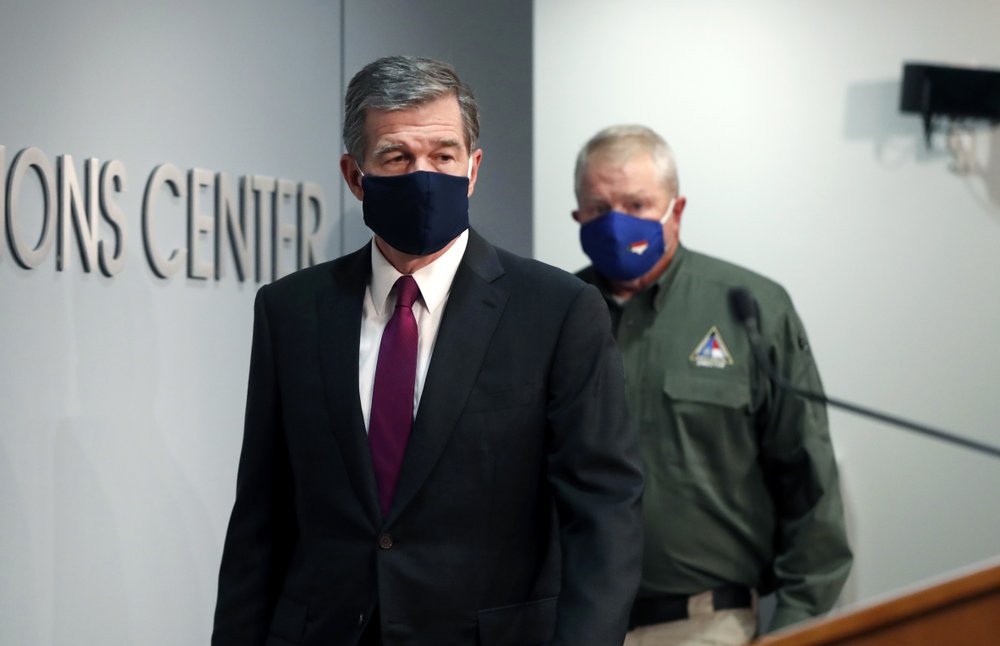
Gov. Cooper Extends Early Cutoff for Restaurant Alcohol SalesNorth Carolina’s governor is extending an executive order that limits the hours that restaurants can serve alcohol to fight the COVID-19 pandemic. Gov. Roy Cooper announced Monday that he’s extending his order that requires restaurants to stop serving alcoholic beverages at 11 p.m. until Oct. 2. State law usually allows sales until 2 a.m. The […]
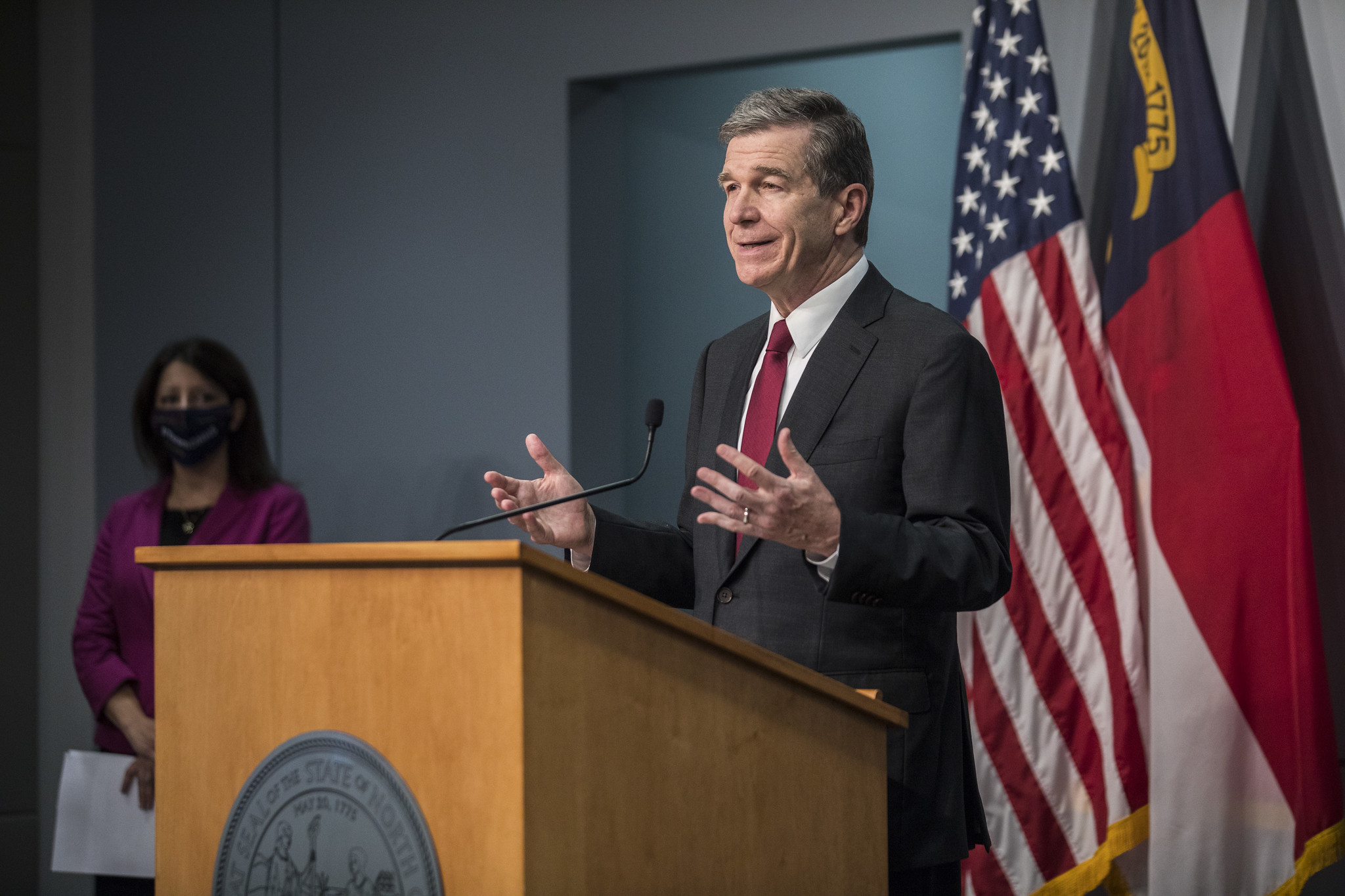
Interest on NC Taxes Paid Waived in Bill Signed by CooperNorth Carolina income tax filers won’t have to pay interest on payments turned in by the new May 17 deadline in a bill signed into law by Gov. Roy Cooper late Tuesday. The legislation, signed by Cooper after the measure was given final legislative approval earlier Tuesday, addresses a result from an IRS decision to push […]
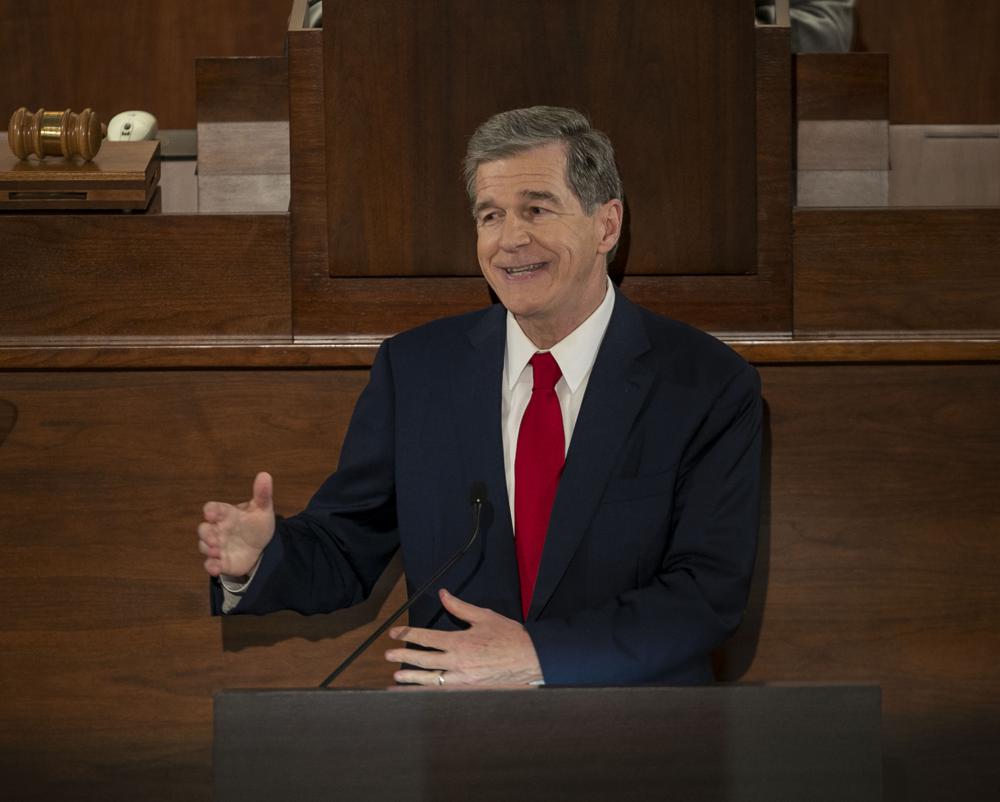
Cooper Address Focuses On COVID, Finding Agreement With GOPWritten by GARY D. ROBERTSON North Carolina Democratic Gov. Roy Cooper recalled the pain and courage stemming from the COVID-19 pandemic in his State of the State address Monday, while urging Republicans to cooperate with him this year on health care, education and infrastructure needs. “In a year of hardship and loss, we owe it to […]
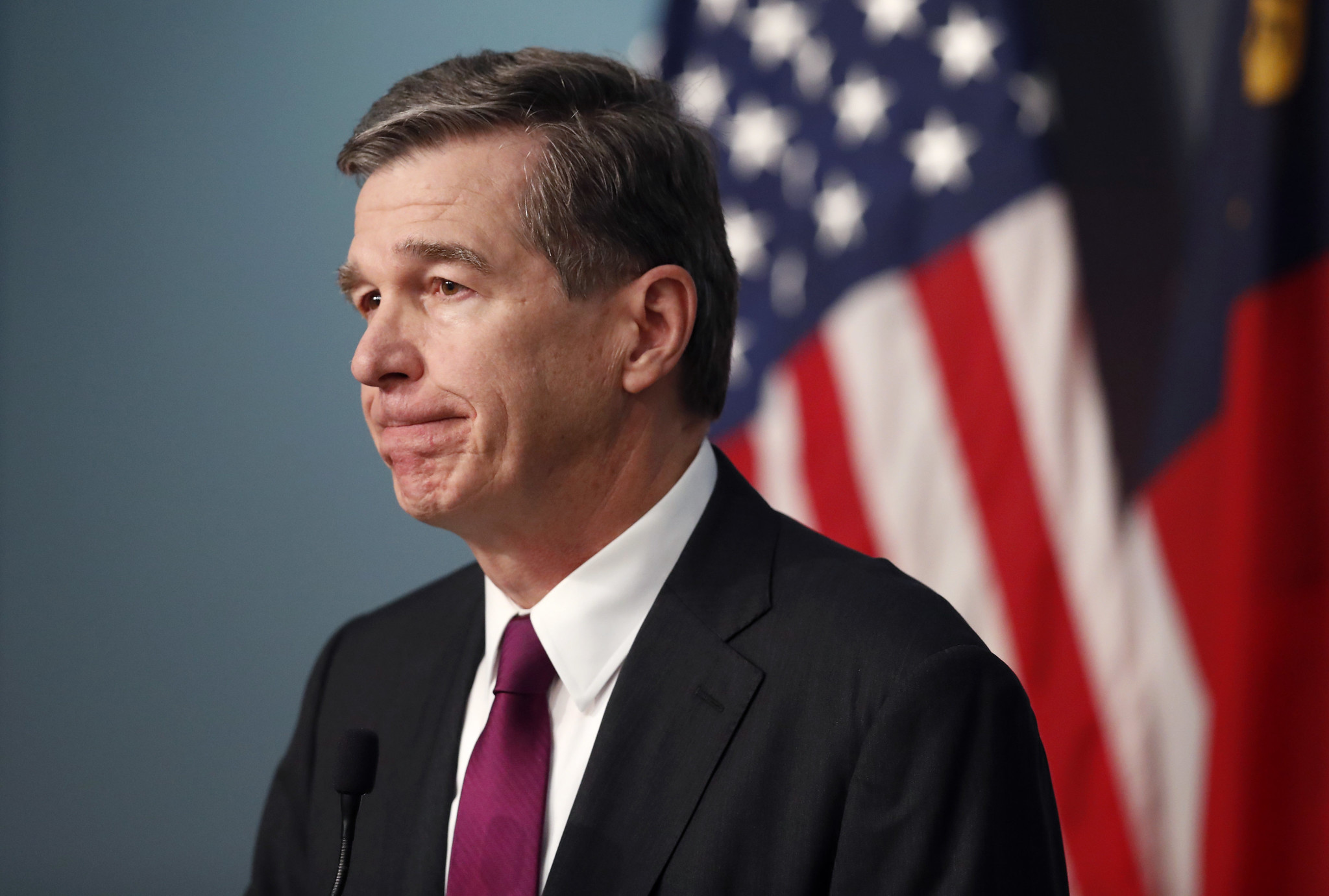
NC House Votes for Guardrails on Governor's Emergency PowersWritten by GARY D. ROBERTSON North Carolina’s governor would have to get formal support from other elected leaders to carry out long-term emergency orders in a measure approved Wednesday by the state House. The 69-50 party-line result favored Republicans, who’ve chafed under Democratic Gov. Roy Cooper’s directives during the COVID-19 pandemic and drafted the legislation. Cooper’s […]
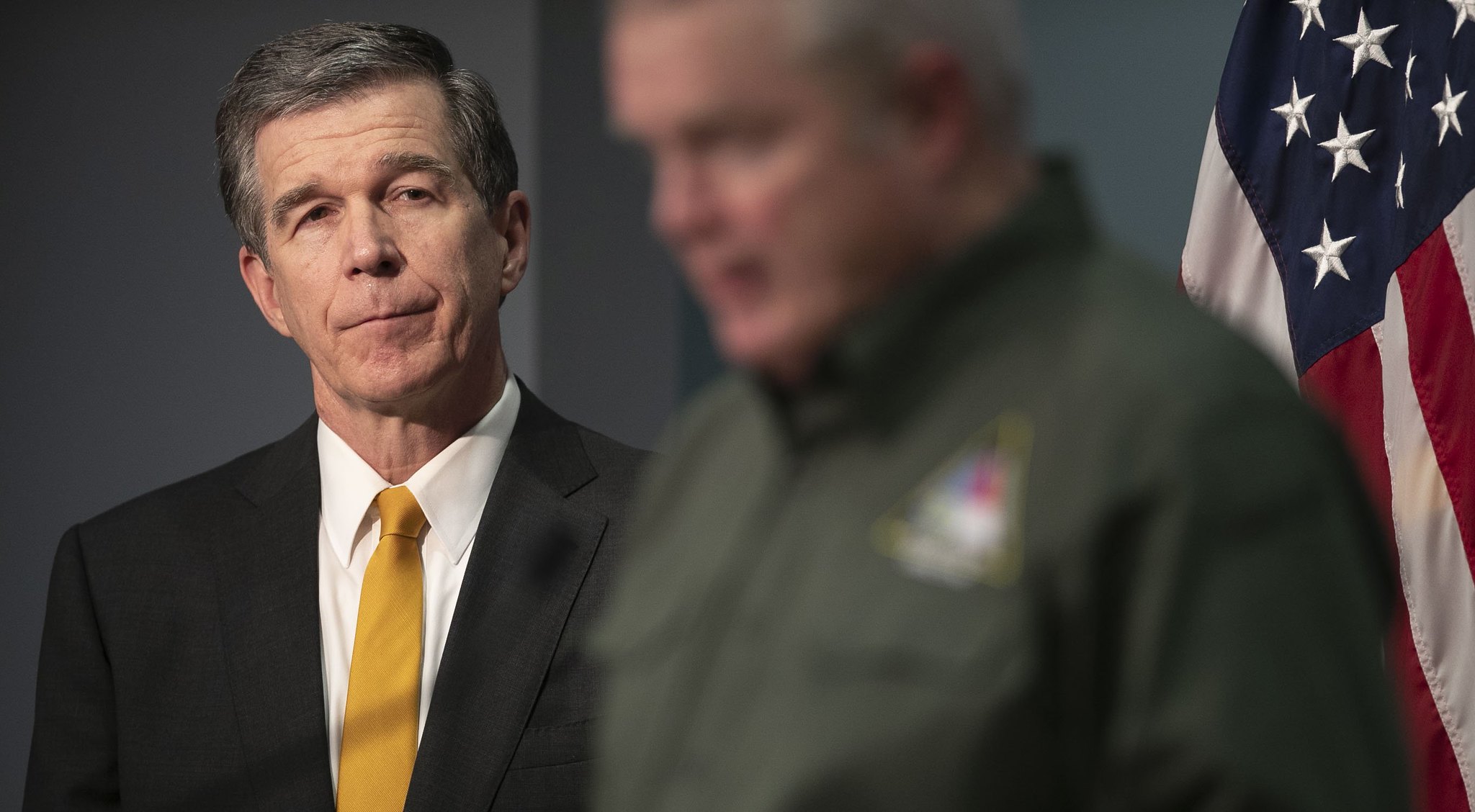
Bill Seeking To Limit NC Governor Emergency Powers AdvancesHouse Republicans advanced a measure on Tuesday that requires North Carolina’s governor to obtain formal support from other elected leaders to enforce long-term statewide emergency orders. A state House judiciary committee voted for the legislation, which marks another response by GOP legislators to Democratic Gov. Roy Cooper’s executive orders since his March 2020 emergency declaration due […]

NC Republicans Seek To Rein in Governor's Emergency PowersNorth Carolina House Republicans on Wednesday launched another attempt to rein in the governor’s powers during state emergencies, citing Democratic Gov. Roy Cooper’s wide-ranging actions to restrict commerce, schools and mass gatherings during the coronavirus pandemic. On the one-year anniversary of Cooper’s first executive order involving COVID-19, several legislators filed a bill that would require the governor […]
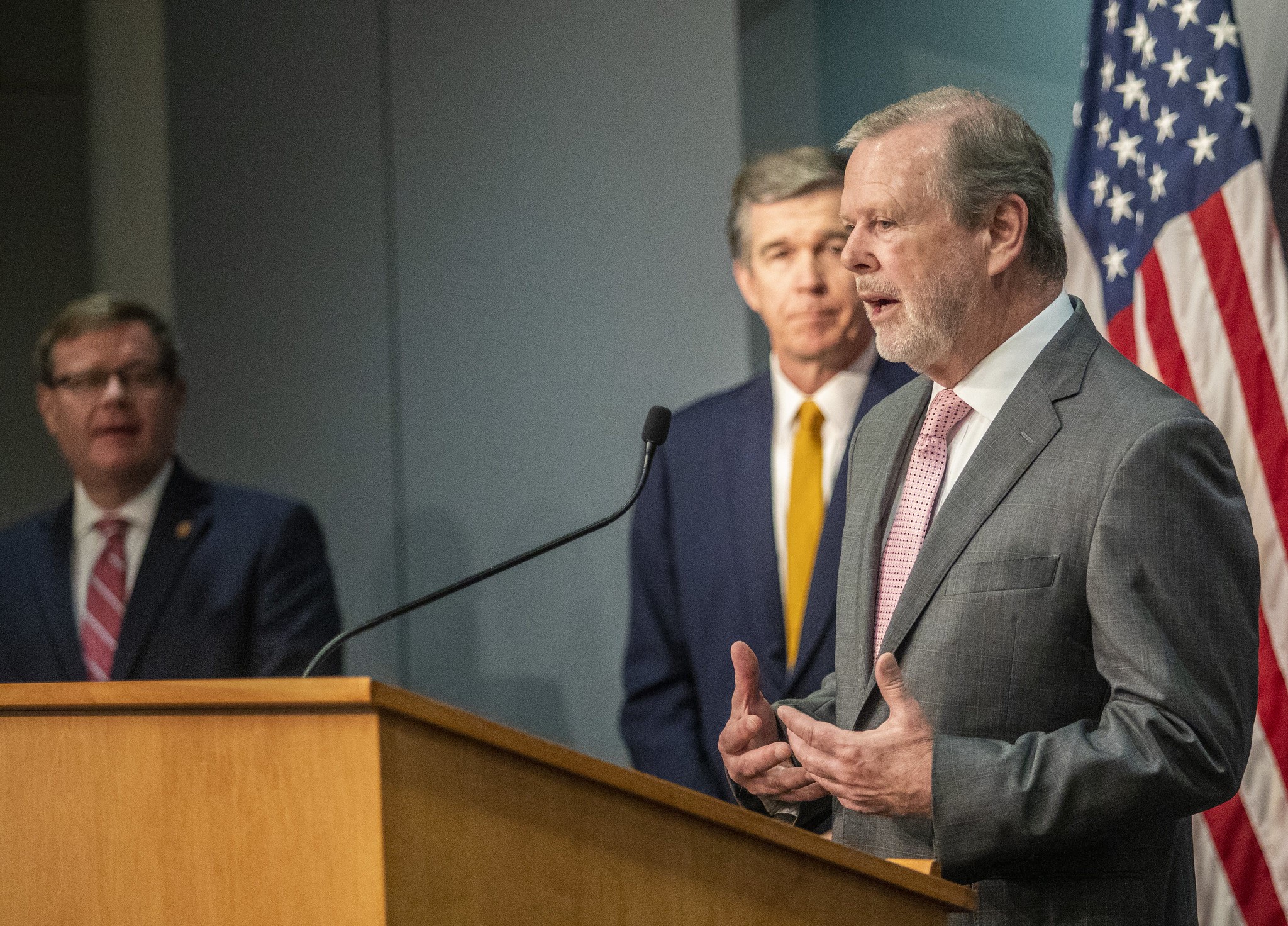
Cooper, Legislative Leaders Announce Deal on K-12 SchoolsWritten by GARY D. ROBERTSON Democratic Gov. Roy Cooper and Republican legislative leaders announced compromise legislation Wednesday that will mean more K-12 students in North Carolina will return to daily in-person instruction, some almost immediately. The agreement, announced in a rare bipartisan news conference by some the state’s most powerful leaders, comes nearly two weeks after […]

Bar Owners To Postpone ABC Fees Under New Law Ok'd by CooperNorth Carolina Gov. Roy Cooper signed a bill on Thursday allowing bar owners whose businesses were limited or shut down by COVID-19 restrictions to defer permitting fees to the state’s Alcoholic Beverage Control Commission until they are allowed to fully resume operations. The new law that was introduced by House Republicans and unanimously approved by […]

Cooper, North Carolina Prison Officials Agree To Release 3,500 InmatesNorth Carolina civil rights groups struck a deal on Thursday with Gov. Roy Cooper’s administration to allow for the early release of 3,500 inmates in state custody over the next six months. If the state abides by its commitment to trim about one-eighth of its more than 28,000-person prison population, the North Carolina branch of […]
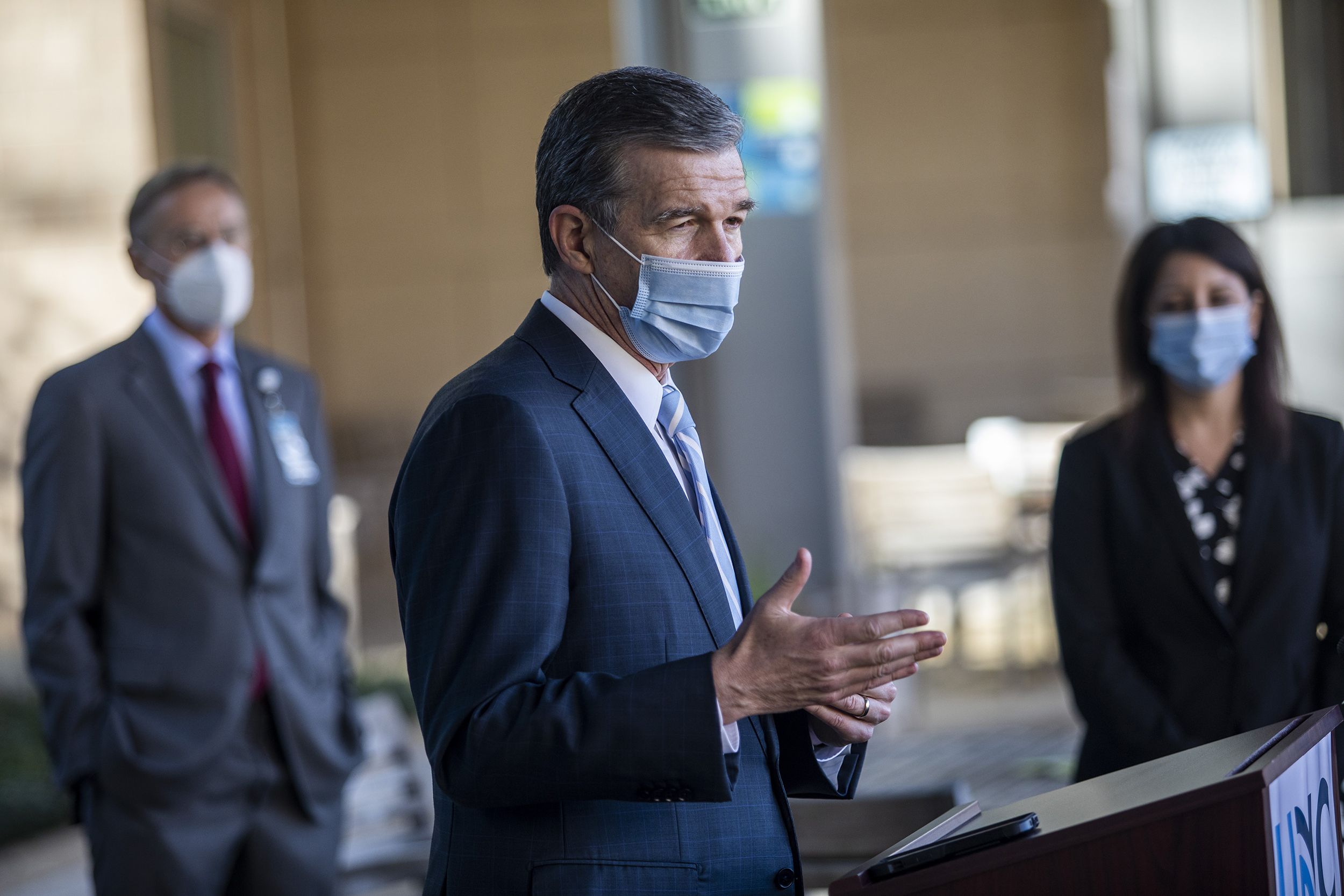
North Carolina's COVID-19 Restrictions Ease on Friday: Here's What You Need to KnowGovernor Roy Cooper announced Executive Order 195 — which eases some pandemic restrictions and lifts North Carolina’s modified stay at home order — earlier this week. “Given the significant and sustained improvement in our COVID-19 metrics,” said Cooper, “today I am announcing that we will ease but not lift restrictions in several areas with a new […]
›

